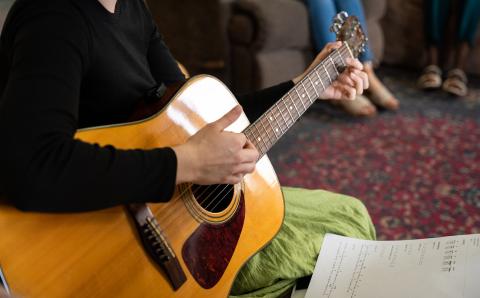Does it matter how the elements are distributed for the Lord’s Supper? Do some methods cause us to multitask too many things or make it hard to meditate?
It is important to differentiate between the sacrament and our traditions around the sacrament. The way churches distribute the bread and the wine (or juice) to the congregation in the past is not necessarily the “best” way or even the only way. We have no direct scriptural basis to prefer one practice over another. In the Lord’s Supper, we commune not only with Christ, but with each other. The sacraments are not individual rites; they belong to the church, and we celebrate them as a community. That is one reason why we do it together.
You mention that multitasking makes it hard to meditate. Multitasking can be a problem at times, but the fact is that we multitask in positive ways all the time, such as when we talk to family members or pray while doing dishes. Coming forward or having music playing during communion can help focus our attention rather than distract us.
The congregation we attend varies how it celebrates the Lord’s Supper. Sometimes we sit in the pew and the elements are passed to us; other times we come forward and dip the bread into the cup (a method called intinction). Personally, we enjoy seeing all our brothers and sisters in Christ coming forward to receive the elements. It reminds us that we are all part of the body of Christ. We see people we’ve known for decades and people who have only recently begun attending, old and young, male and female. But we all share in the same loaf and cup. That’s a powerful reminder that we, the church, are also the body of Christ.
About the Author
Laura Keeley is a regional catalyzer in faith formation with Thrive, the ministry agency of the Christian Reformed Church. Robert Keeley is a professor emeritus of education at Calvin University. The Keeleys recently retired after 31 years as directors of children’s ministries at 14th St. CRC in Holland, Mich.









